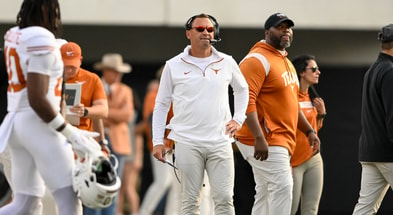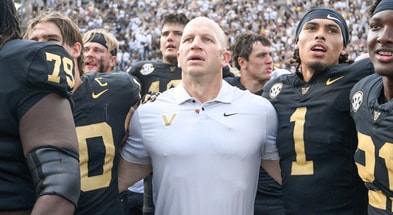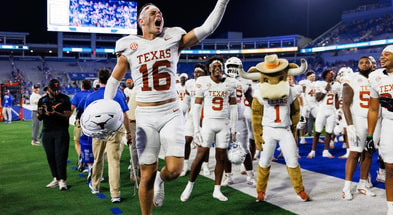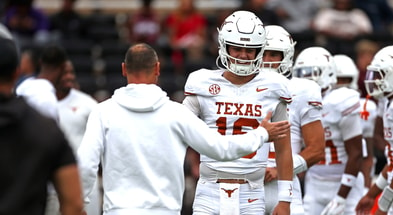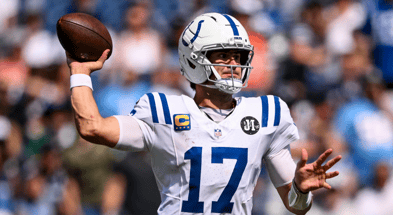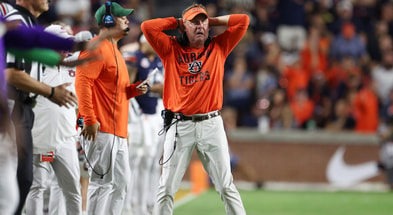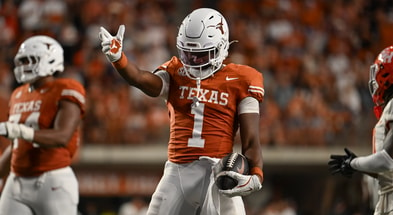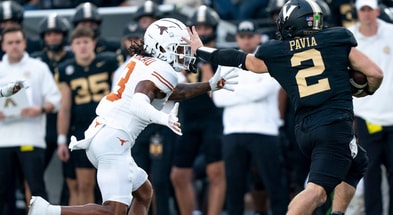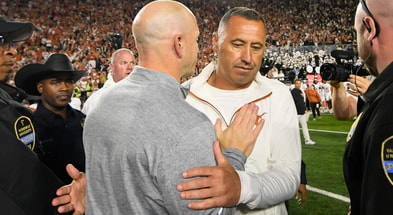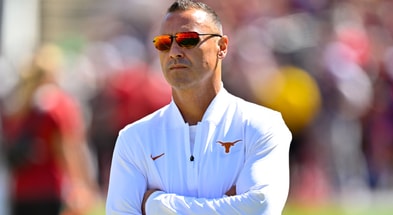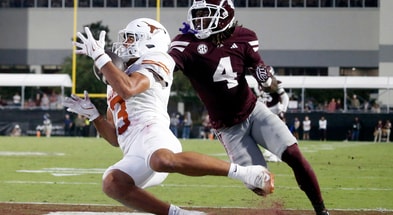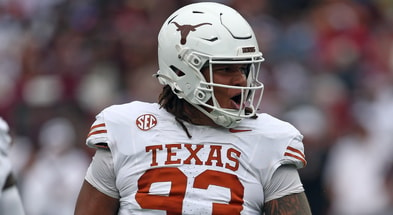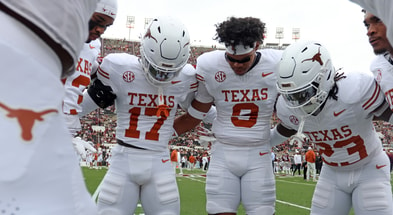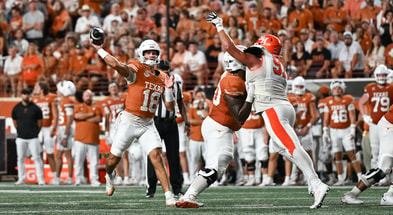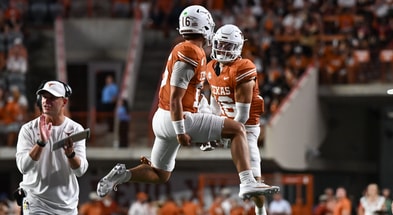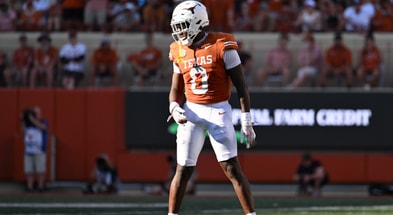How Long Does the Underdog Chip Last? For Texas, Execution Matters More Than the Noise

How long does the underdog chip really stay on your shoulder when you’re heading into a big football game? This week, Texas finds itself in unfamiliar territory. A team that’s been the favorite in nearly every game all season is suddenly the underdog heading into a matchup with Ohio State. The hunted has now become the hunter. But what does that actually mean when it comes to the game?
[BOOKMARK: Check Inside Texas daily for FREE Texas Longhorns content]
Let’s look back for a moment at the 2005 season. Texas was in a similar position, the underdog against a USC team that had been crowned as unbeatable all year. In the documentary about that season, plenty of Texas players talked about how they wanted to face USC and prove themselves because everyone had already handed USC the trophy.
Now, fast forward to today. The media is picking Ohio State to win, with some even saying they could blow Texas out. Do the Buckeyes feel as confident as the media does? That’s hard to say. No coaching staff worth their salt would let their players think this is going to be an easy game. They’re likely preaching that this will be a heavyweight fight, one that will take four quarters of their best football.
“We don’t talk that way,” Texas head coach Steve Sarkisian said Thursday. “It’s a clean slate. The reality of it is, you don’t get any points if you’re an underdog. You don’t get to say hey, we lost by five. You win. It doesn’t work like that in our world. You have to win, either you win or lose the game.”
But even if Texas feels disrespected, how long does that really matter once the game starts?
Here’s the thing: being the underdog definitely fires you up. It fuels your preparation. It gives you that extra edge during practice, and it’s in your head as you come out of the tunnel. But when the ball is kicked off and the whistle blows, the only thing that truly matters is what happens between the white lines.
Sure, there might be moments during the game when you think, “Oh, you think you’re better than me? Let me show you.” But you can’t hang onto that for long. If you’re still obsessing over disrespect or doubters while the game is unfolding, you’re not fully locked into your assignment. Football is a game of execution, play by play, series by series. And if you’re distracted, the other team will make you pay.
Top 10
- 1New
Jon Sumrall
Addresses coaching rumors
- 2
Louisiana Governor
Suggested AD's firing
- 3Hot
Dan Lanning
Makes coaching plans clear
- 4Trending
Matt Rhule
Signs extension, massive buyout
- 5
Oklahoma-Tennessee
Playoff elimination game
Get the Daily On3 Newsletter in your inbox every morning
By clicking "Subscribe to Newsletter", I agree to On3's Privacy Notice, Terms, and use of my personal information described therein.
After the game? Sure, that’s when you can reflect and say, “Yeah, they disrespected us, and we made them pay for it.” But during the game itself, the chip on your shoulder doesn’t win you the game—your focus, discipline, and execution do.
I’ve been on a team where we were underdogs, where we carried that chip all week. We practiced harder, locked in during film sessions, and got ourselves ready to prove people wrong. And yet, when the game came, we still lost. Why? Because the emotions that fuel you in the lead-up don’t matter if you don’t execute once the game starts.
So, does being the underdog make a difference? Absolutely. It changes the way you prepare and gets the adrenaline pumping. But when the whistle blows, it’s about doing your job. The best teams—whether favored or doubted—find a way to focus on the task at hand and play their best football. Everything else is just noise.
[Join Inside Texas TODAY and get 7 days for just ONE DOLLAR!]
And that’s exactly what Texas has to do. They have to focus on their job, one play at a time, and execute. If they do that, all the pregame narratives won’t matter. The only thing that will matter is the score at the end of the game.
